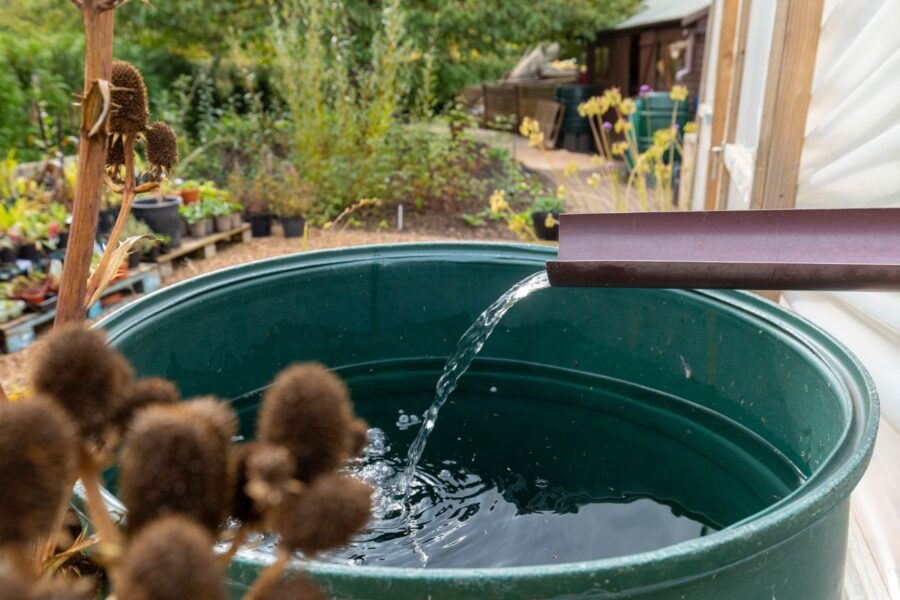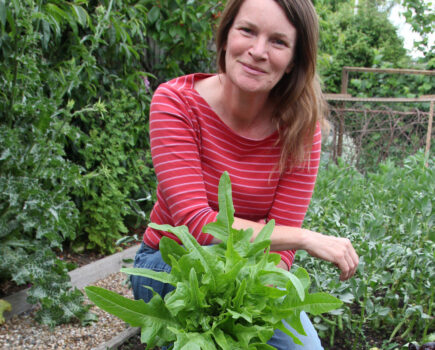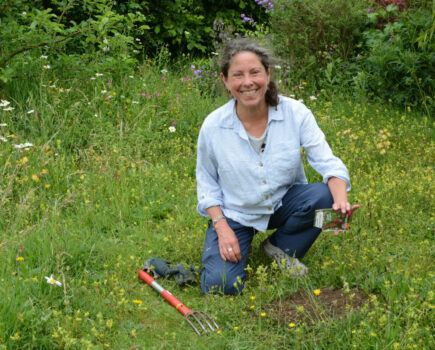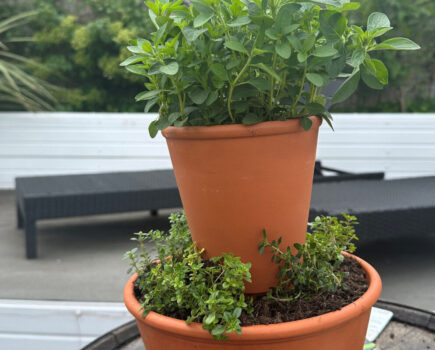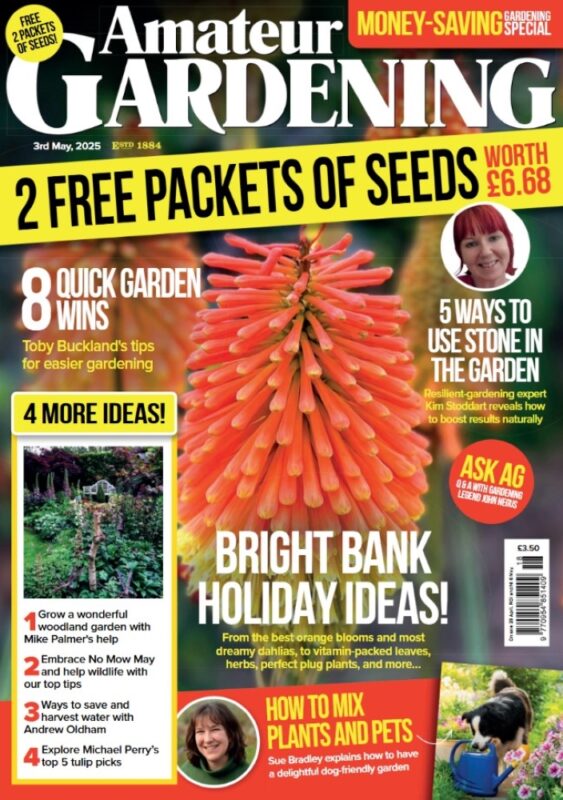Conserving water and nurturing soil health are on the to-do list for Chris Collins this summer
Keeping your soil healthy, moist and regularly replacing nutrients is key if you want to keep your small garden looking good and productive all summer. At this time of year, I like to add a top-dressing of compost to the container (home-made if possible) to help boost my growing plants. I’ll also add an organic feed such as comfrey pellets or liquid feed.
If you’re growing hungry food crops such as courgettes and tomatoes, they will benefit from being mulched in summer. The mulch should be lower in depth toward the plant crown, allowing puddling when watering. This in turn creates humidity around the plants, and bats away the dreaded powdery mildew that courgettes often succumb to.
One of the most pleasant tasks of the summer months is the gentle art of dead heading. This is when you remove spent flowers to encourage further buds. It keeps the colour coming but also helps our pollinators with a longer season of nectar and pollen. Plants such as roses or seasonal pelargoniums will certainly benefit, and at the same time you can pick off any dead or fading leaves. This practise will help deter common mildews that appear during the hotter, drier weather.
Watering is a key task in warmer temperatures, and while it might seem strange to talk about water saving after such a wet winter and spring, it’s important as this precious resource can soon become scarce. Try to collect water where possible. If room allows, fix a water butt to your guttering and drainpipe system. Grey water can also be saved from washing up (make sure there’s no strong detergents or too many food bits in the water) and used on mature specimens of trees and shrubs. Water early morning or last thing in the evening to maximise the impact and reduce transpiration.
Our plants are not the only ones that need water. Remember to provide a cool pool for birds and bees to drink and bathe, and your summer garden will soon be filled with lovely scents, sights and sounds.
……….
Small Space Q&A
Q. Do I need to change the type of feed I use in my containers in the summer?
A. At this time of year I move from a more general fertiliser to a potash-based feed. Potash or potassium is the nutrient that encourages the production of fruit and flowers, so this is the ideal time to apply. I use comfrey ‘Bocking 14’, which Garden Organic’s founder Lawrence Hills discovered was a fantastic fertiliser, soil and compost improver, bee magnet and compost accelerant. Find out more at gardenorganic.org.uk/comfrey or visit the National Collection of Comfrey at the charity’s Organic Garden in Ryton, Coventry.
Q. I’m so behind on my seed sowing, is it too late to sow now?
A. You can still sow salad crops, carrots, cabbage, turnips and spinach in mid-august. Leafy herbs such as parsley, coriander and basil will also enjoy the warmer soils. Remember to let a few of these flower for pollinators.
Q. I find it hard to tell when my pots need watering, and often over water. Any tips?
A. Use the finger test to check if the soil is moist a few centimetres down. If it is, the plant does not need watering. Test the weight of your pots, by lifting them up when they are fully watered, so you can recognise when they need a drench.
Find more tips, advice and articles like this at the Amateur Gardening website. Subscribe to Amateur Gardening magazine now

